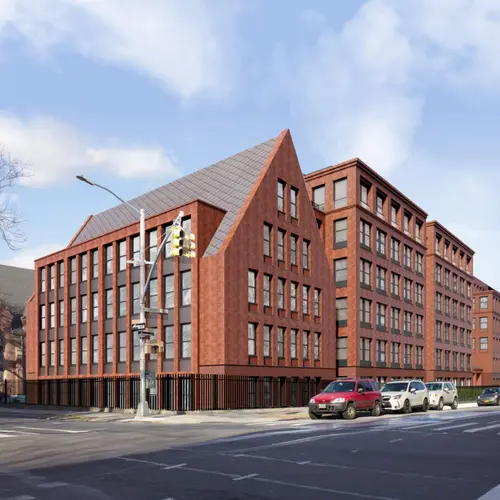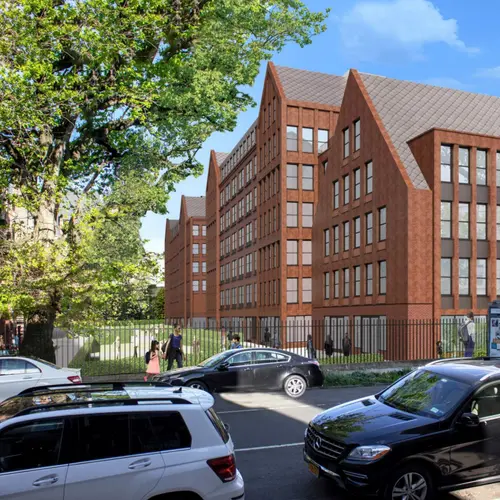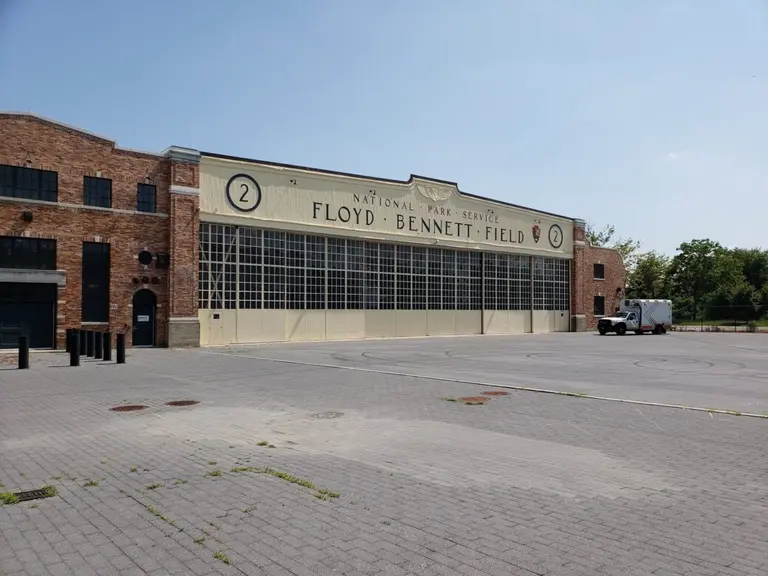Crown Heights residents sue LPC over apartment complex on site of landmarked ‘crown jewel’
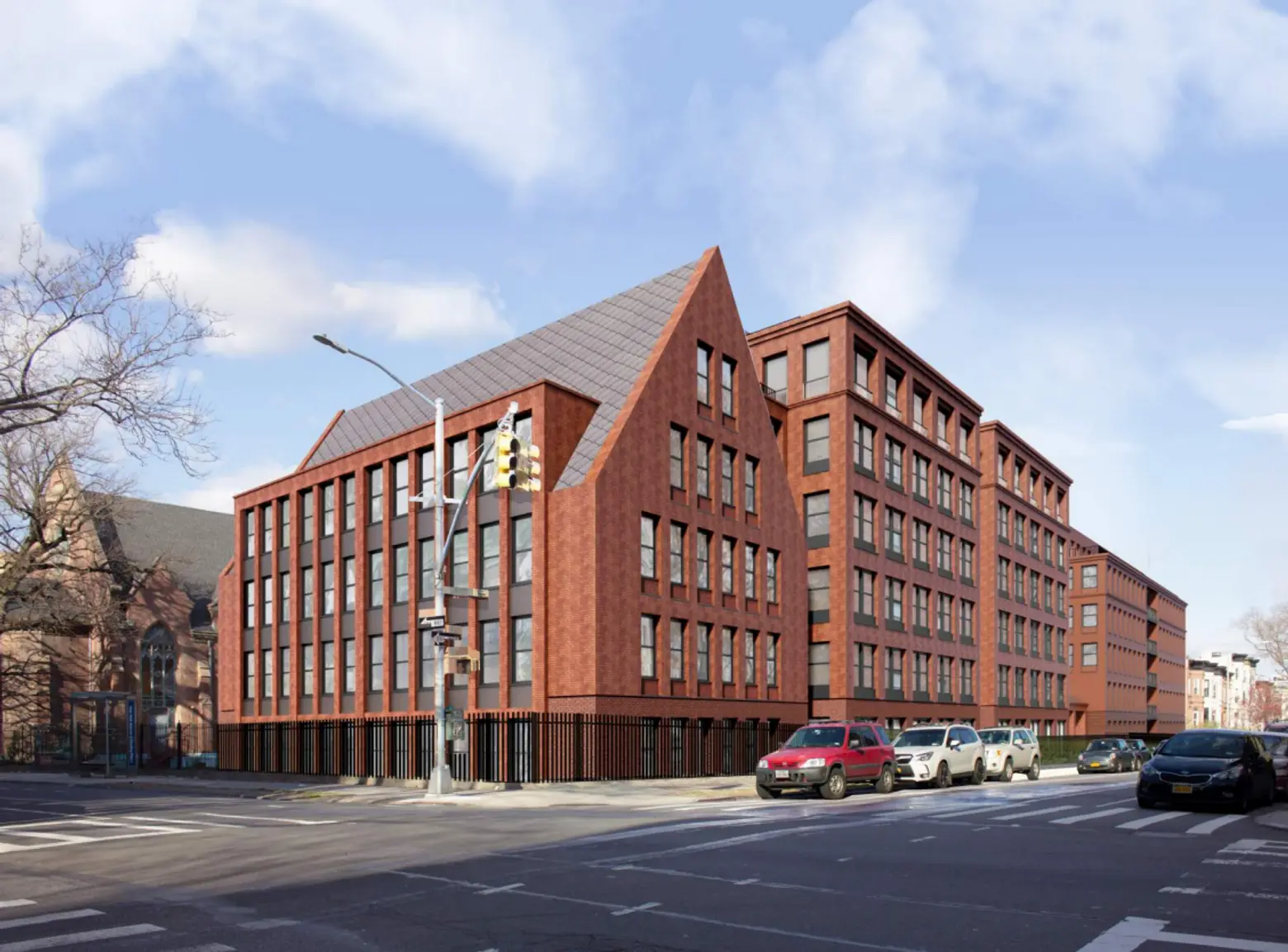
All renderings courtesy of Morris Adjmi Architects via the Landmarks Preservation Commission
A coalition of Crown Heights residents and preservationists last week filed a lawsuit against the Landmarks Preservation Commission for approving a major residential project on a historic Brooklyn property. Developed by Hope Street Capital and designed by Morris Adjmi Architects, 959 Sterling Place (aka 920 Park Place) consists of a seven-story complex with 158 apartments and community space that will replace a landmarked 19th-century building. On Friday, attorneys representing the coalition of opponents filed a lawsuit against the LPC and Hope Street Capital, claiming the commission violated the law by failing to hold a public hearing.
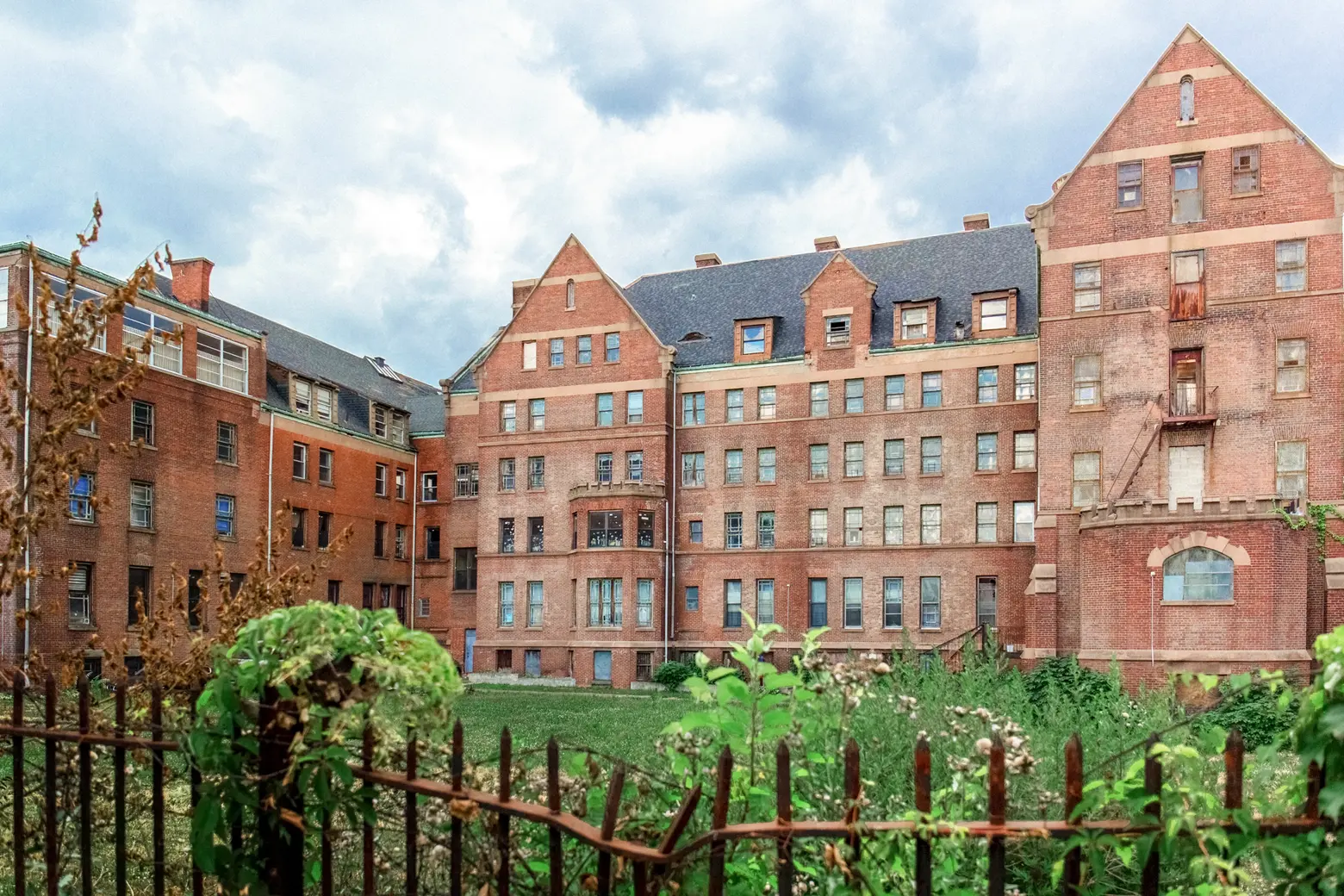
Southern facade; Photo credit: Simia Rassouli
The site, which was landmarked in 2011 as part of the Crown Heights Historic District II, once held the Methodist Home for the Aged and Infirm. Constructed in 1888-1889, the building was designed using the Romanesque Revival architectural style and is one of the neighborhood’s last-remaining 19th-century structures. The site is now occupied by the Hebron Seventh Day Adventist Elementary School.
The property has fallen into disrepair in the last couple of years and the new project is seen as necessary to fund repairs for the building’s many urgent issues, according to the Brooklyn Paper.
Opponents have taken issue with the proposed construction which would “disfigure” the existing Hebron Seventh Day Adventist campus, according to a press release. The seven-story development would block views of the historic church and take away much-needed green space from the community, the coalition argues.
“Hebron Seventh Day Adventist Church and School complex is widely known as the “Crown Jewel” of Crown Heights,” Council Member Chi Ossé said in a statement. “It is largely unique in the necessity of its structural and aesthetic preservation. The proposed development is opposed almost uniformly by the community and would strip the area of communal green space. It should not be built, especially without community input.”
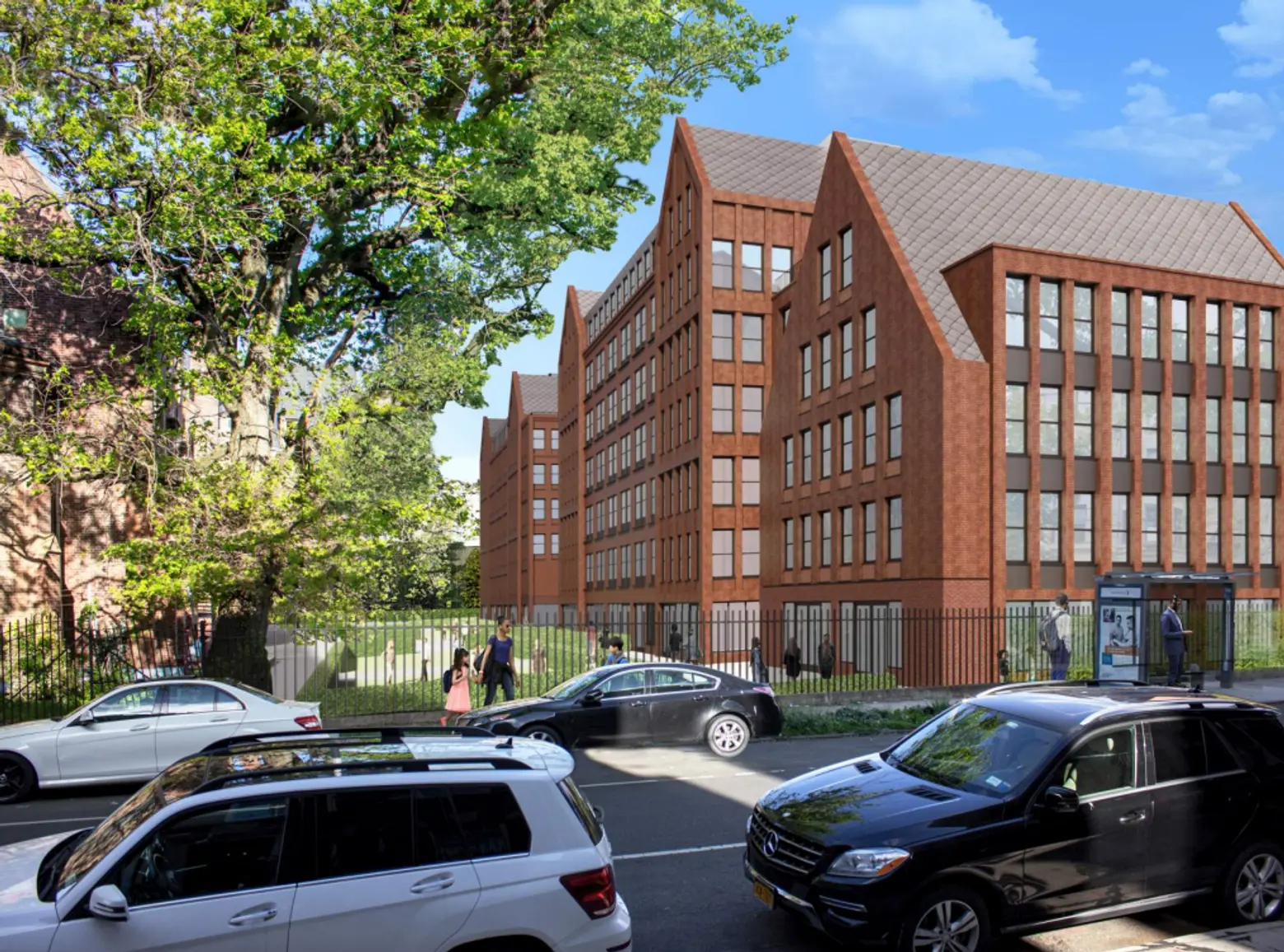
Law firm Hiller, PC, filed a petition under Article 78 of the New York State Civil Practice Law and Rules to overturn the commission’s approval on behalf of the petitioners, which include Sterling Place BK-NY Block Association and individuals who live in the surrounding area.
The petition filed under Article 78 accuses the commission of breaking the law when they approved the project without holding a hearing during which the public could share feedback. If the lawsuit is successful, Hope Street Capital will be forced to halt the existing project and start from scratch to get a new approval, according to a press release.
Landmarks approved the project last May and construction permits were granted by the city in December.
“Once again, the City has provided a so-called “public hearing process” that is plainly designed to give the appearance of public engagement, when, in fact, the process serves only to disenfranchise communities from having a say into the Commission’s decision-making,” Jason Zakai, one of the attorneys for the petitioners, said.
In June 2020, Crown Heights neighborhood group Friends of 920 Park collected over 4,000 signatures in an online petition in hopes of stopping the construction of the project. According to the petition, residents oppose the massive scale of the project and the effects on the neighborhood’s already small amount of open green space, as well as the lack of affordable units proposed in the development and the disruption construction would cause nearby residents.
Brooklyn Community Board 8 voted against the project, and more than 1,500 people and organizations have written letters in opposition, with dozens of others testifying against it at the Commission’s only public hearing regarding the construction in October 2020.
RELATED:
